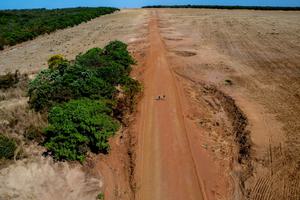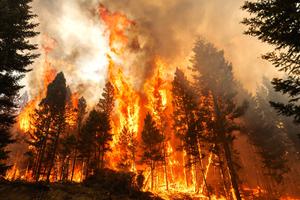The closing session of the UN biodiversity conference in Montreal. UNEP via Flickr
Nearly 200 countries have pledged to protect 30 percent of the Earth’s land and sea by the end of this decade as part of a historic deal that aims to stem the rising tide of extinctions. Delegates agreed to the target early Monday in the final hours of the UN biodiversity conference in Montreal.
“We have in our hands a package which I think can guide us as we all work together to halt and reverse biodiversity loss and put biodiversity on the path to recovery for the benefit of all people in the world,” China’s environment minister Huang Runqiu told the delegates. “We can be truly proud.”
As part of the watershed deal, countries are also aiming to cut fertilizer runoff from farms by 50 percent, reduce the risk of of pesticides by 50 percent, and stem the flow of invasive species, while putting $200 billion annually toward biodiversity by the end of this decade. Wealthy countries resisted pressure to provide $100 billion a year to fund poorer nations’ efforts to protect nature, but by the conference’s end, they agreed to send $30 billion annually to developing countries by 2030.
“Clear targets are of enormous potential significance for stopping biodiversity loss in the next coming years,” Imma Oliveras Menor, an environmental researcher at the University of Oxford, said in a statement. Though, she added, the success of the pact will ultimately depend on the willingness of countries to cooperate and compromise.
About a million species face extinction globally, according to a UN estimate, as a result of rising temperatures, air and water pollution, invasive species, and the loss of habitat to development. Currently just 16 percent of land and 8 percent of the oceans fall within protected areas, according to the UN.
“For far too long humanity has paved over, fragmented, over-extracted and destroyed the natural world on which we all depend,” Inger Andersen, executive director of the UN Environment Programme, said in a statement. “Now is our chance to shore up and strengthen the web of life, so it can carry the full weight of generations to come.”
ALSO ON YALE E360
The 30 Percent Goal: Is Bigger Always Better for Biodiversity?



